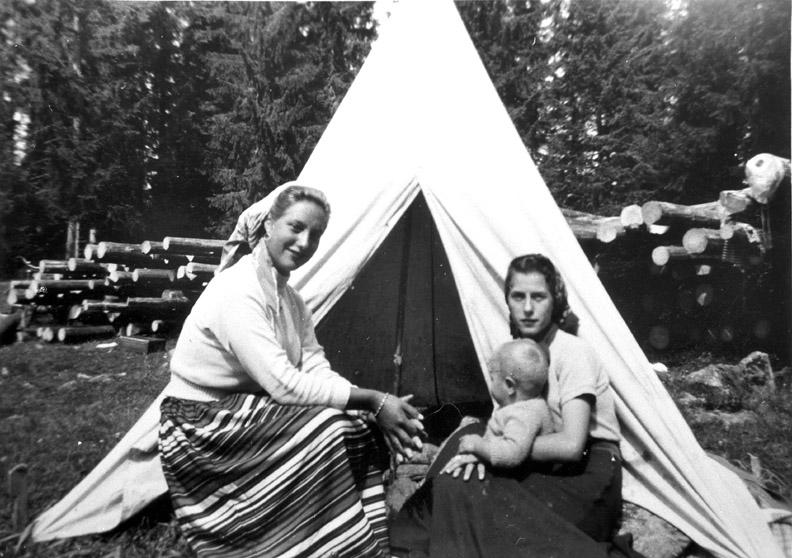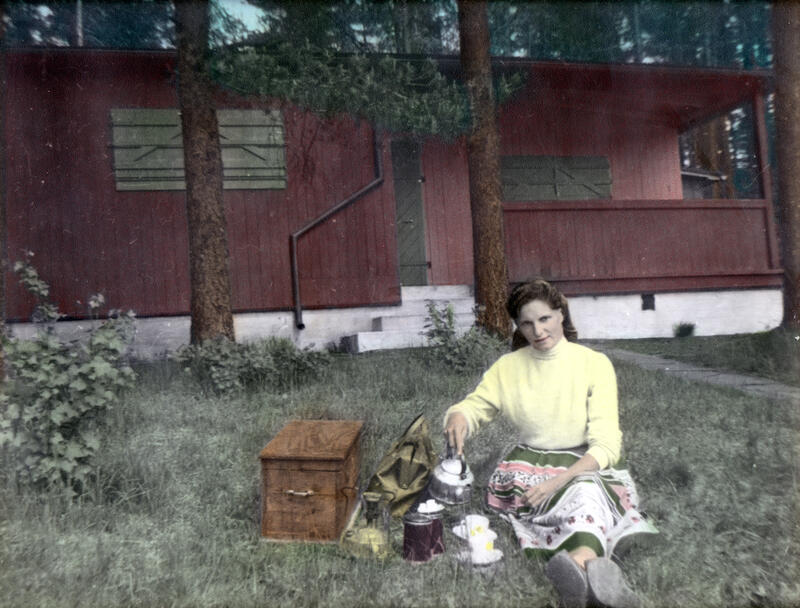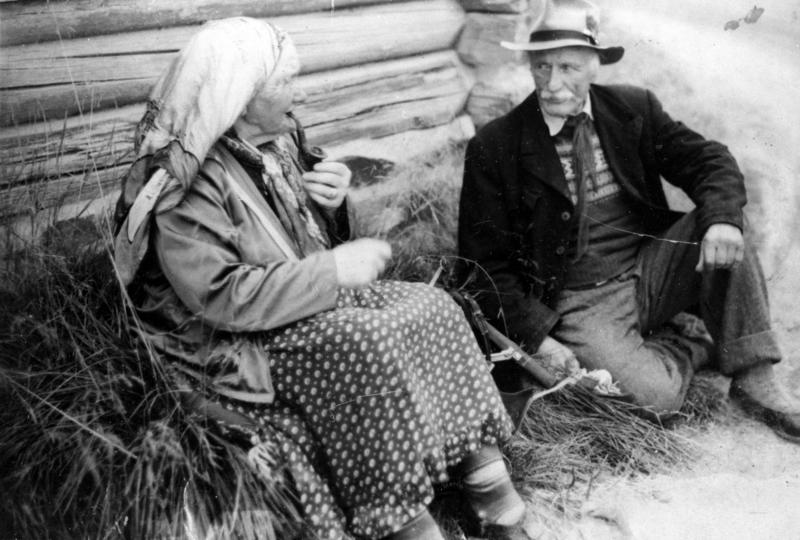Each child and adult had their own bedding and their own cups and spoons. Neither children nor adults would eat from a "stranger’s spoon or cup" or lie in a stranger’s bedding. They feared being infected with diseases or vermin.
To this day, women of Traveller heritage are often particularly concerned with hygiene. For example, the "cup cloth" is boiled in a special pan and is not placed in the washing machine along with clothing.
- 1/1
To kvinner med barn foran telt. Foto: Finn Åberg/ Anno Glomdalsmueet
Frida explains the importance of cleanliness when they were out "on the road":
"Johan and I got married when I was 17. We had four kids. Had I not been concerned with cleanliness, our four kids may not have survived. When I got up in the morning, the first thing I did was to wash myself. It did not matter if it was raining. Then I lit the primus and made coffee. While the coffee was boiling, I gave hay to the horse. Then I took out the bedding, which had to be hung outside every day; the kids had their own."
"Then I washed the kids and combed their hair. We washed ourselves by the river or creek. We always had two wash basins, one for the lower body and the other for the face. We also brushed our teeth. We used a lot of pure green soap, Lano soap for the babies and Sunwix soap for the rest of us."
"Our clothes were also washed by the river. We used Goma detergent. I often washed the clothes on a rock. We had a separate saucepan to warm the water for the laundry. Clothes had to be washed in the morning, so that they could dry during the day. Luckily, my husband always waited to move on until all the laundry was dry! I have heard that this is why Travellers rarely got tuberculosis. They were also never allowed to lie on a stranger’s pillow. My kids ate a lot of raw vegetables. I guess that's why they have almost no cavities."
(Frida, born 1935.)


